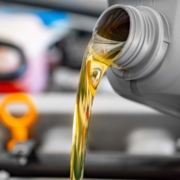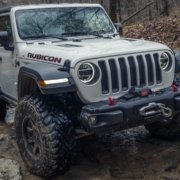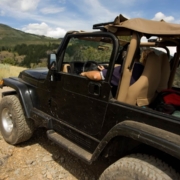Top 10 Benefits of Regular Jeep Oil Changes
As a Jeep enthusiast, your vehicle is more than just a mode of transport; it’s your partner in adventure, be it on untamed trails or urban landscapes. To keep this trusty companion in top shape, regular maintenance is crucial, with oil changes being paramount. Let’s explore the top 10 reasons why Jeep owners should never skimp on oil changes.
1. Essential Engine Lubrication
Think of engine oil as the lifeblood of your Jeep. It ensures that all the moving parts, especially in a vehicle that thrives in challenging conditions like a Jeep, are well-lubricated. This reduces friction and prevents wear on vital parts such as pistons and crankshafts.
2. Regulating Engine Temperature
The power your Jeep harnesses generates significant heat. Oil plays a key role in dissipating this heat, maintaining an optimal engine temperature and preventing the risks of overheating. Keeping the oil fresh is essential for it to function effectively.
3. Maintaining Engine Cleanliness
Over time, oil can become a repository for dirt, debris, and other contaminants. Regularly changing your oil ensures these harmful particles are removed, safeguarding your engine from potential damage and promoting longevity.
4. Boosting Fuel Efficiency
A well-lubricated engine is an efficient engine. By regularly changing your Jeep’s oil, you’re not only enhancing its performance but also improving fuel efficiency. This means more miles on the road and less environmental impact.
5. Optimizing Engine Performance
Fresh oil ensures that all components of your Jeep’s engine work smoothly. This translates to better performance, responsiveness, and an overall more enjoyable driving experience, no matter the terrain.
6. Proactive Maintenance
Regular oil changes are a form of proactive maintenance. They allow you to catch and address minor issues before they turn into major headaches, reducing the likelihood of breakdowns and expensive repairs in the future.
7. Prolonging Engine Life
The longevity of your Jeep’s engine is directly tied to how well you maintain it. Regular oil changes minimize wear and tear, ensuring that your Jeep remains a steadfast companion for many adventures to come.
8. Ensuring Warranty Compliance
To keep your Jeep’s warranty valid, adhering to the recommended maintenance schedule, including oil changes, is often required. This compliance offers financial protection and peace of mind.
9. Increasing Resale Value
Regular maintenance, including oil changes, can enhance the resale value of your Jeep. It’s a clear indicator to potential buyers that the vehicle has been well-cared for, potentially increasing its market value.
10. The Peace of Mind Factor
Knowing that your Jeep is well-maintained, with a healthy engine, allows you to fully enjoy your drives and adventures. Regular oil changes offer peace of mind, knowing that your vehicle is in optimal condition.
In summary, the importance of regular oil changes for Jeep owners cannot be overstated. It’s about more than just maintenance; it’s about ensuring that your Jeep remains a reliable, efficient, and enjoyable vehicle for all your on and off-road escapades.
At Parker 4×4, located in Parker, Colorado, we understand the soul of a Jeep. Our team of experts specializes in Jeep repairs and maintenance, ensuring that your vehicle receives the care it deserves. Don’t let your Jeep’s performance falter due to neglected maintenance. Visit us at Parker 4×4 and schedule your next oil change today. Keep your Jeep adventure-ready with Parker 4×4 – where your Jeep’s health is our priority.




